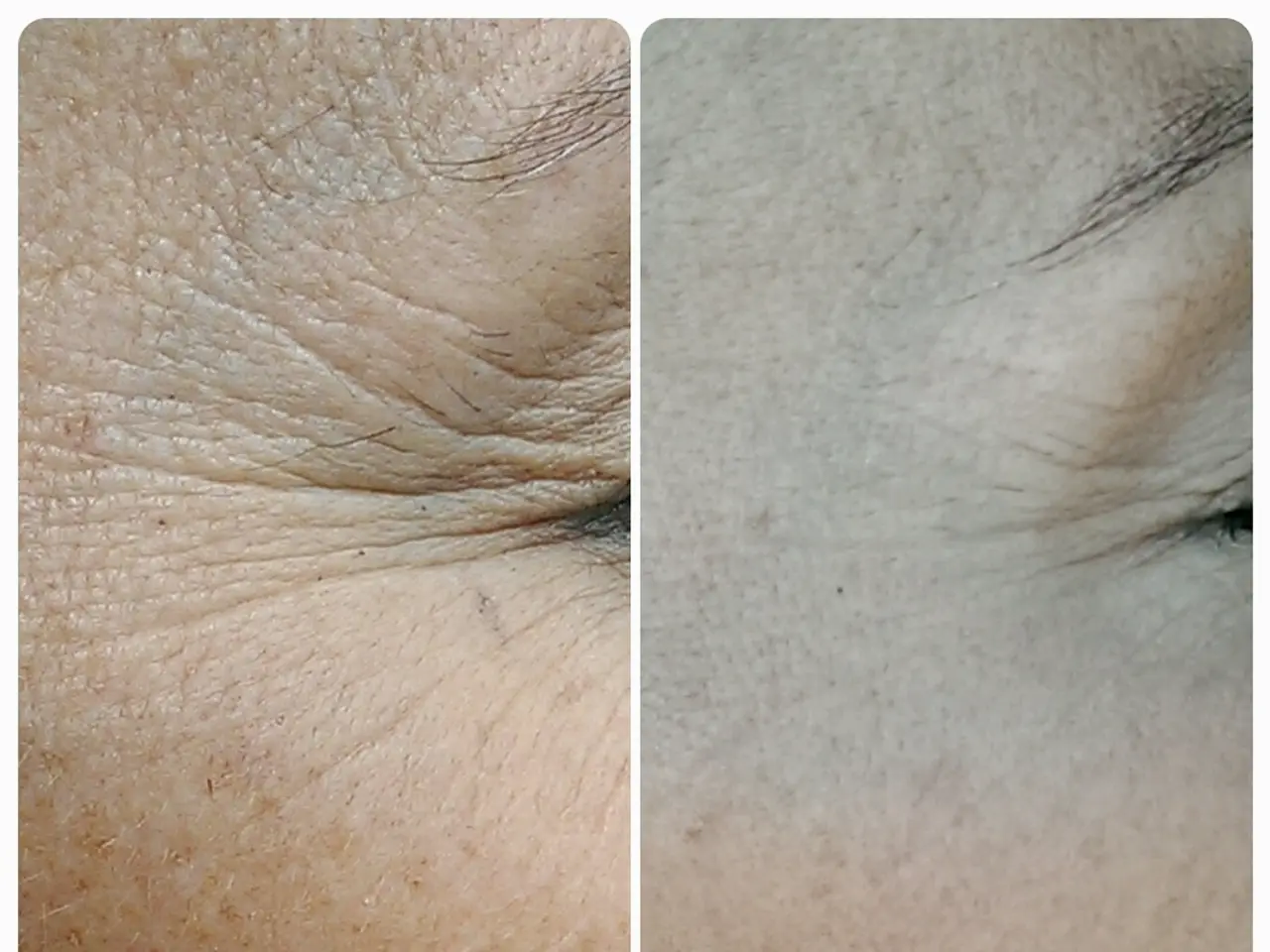Impact of Diet on Skin Aging: Examining its Role in Skin's Aging Cycle
A balanced diet plays a crucial role in promoting a vibrant, youthful complexion and slowing skin aging. The key lies in foods rich in antioxidants, vitamins (especially C, A, and E), omega-3 fatty acids, and phytochemicals.
Fruits and vegetables high in vitamin C and antioxidants, such as tomatoes, bell peppers, oranges, mangoes, strawberries, and citrus fruits, help boost collagen production, reduce oxidative stress, brighten skin tone, and protect against environmental damage.
Foods rich in beta-carotene and vitamin A, like carrots, sweet potatoes, and mangoes, help reduce wrinkles, improve skin hydration, stimulate collagen, and protect against sun damage.
Omega-3 fatty acids from sources like chia seeds reduce inflammation and strengthen the skin barrier, keeping skin supple and hydrated.
Nuts, seeds, edamame, and soy products provide isoflavones which may minimize wrinkles and improve skin elasticity.
Healthy fats from avocados and olive oil support skin moisture and barrier function, preventing dryness and irritation.
Phytoestrogens (e.g., from soy) and polyphenols (found in grapes and green tea) also contribute to skin elasticity and protection from aging.
In addition to a balanced diet, it's essential to avoid high-glycemic, processed, sugary, and salty foods that trigger inflammation and skin problems like acne and premature aging.
Maintaining hydration by drinking plenty of water and including hydrating fruits and vegetables is also crucial.
To support overall skin health and slow aging, it's important to complement diet with sun protection, stress management, and adequate sleep.
Consult with a healthcare professional to determine if supplements like collagen peptides, vitamin D, or omega-3 fatty acids are suitable for you. When selecting supplements, opt for high-quality products from reputable brands with certifications and third-party testing. Supplements should not replace whole foods; they should complement a healthy diet.
The Mediterranean diet, rich in fruits, vegetables, whole grains, olive oil, and fatty fish, is particularly beneficial for skin health. While a balanced diet is the best way to obtain essential nutrients, sometimes supplements can help bridge the gap.
Limit added sugars and processed foods, as they can lead to inflammation and glycation, both of which accelerate skin aging. Chronic stress can lead to hormonal imbalances that exacerbate skin issues such as acne and eczema. Incorporating stress-reducing practices like yoga, meditation, or regular exercise can help maintain skin health.
Studies have shown that adherence to the Mediterranean diet can improve skin elasticity and reduce signs of aging. Aim for 7-9 hours of quality sleep each night to support skin health. Sleep is the body's natural restorative process, and lack of sleep can result in dull skin, dark circles, and an overall aged appearance.
- A balanced diet that includes foods rich in antioxidants, vitamins, and essential fatty acids can help promote a vibrant, youthful complexion and slow down skin aging.
- Fruits like tomatoes, bell peppers, oranges, mangoes, strawberries, and citrus fruits, are high in vitamin C and antioxidants, aiding in collagen production, reducing oxidative stress, and protecting against environmental damage.
- Foods rich in beta-carotene and vitamin A, such as carrots, sweet potatoes, and mangoes, can help reduce wrinkles, improve skin hydration, stimulate collagen, and protect against sun damage.
- Consuming omega-3 fatty acids from sources like chia seeds can help reduce inflammation and strengthen the skin barrier, keeping the skin supple and hydrated.
- Nuts, seeds, edamame, and soy products provide isoflavones which may minimize wrinkles and improve skin elasticity.
- Healthy fats from avocados and olive oil support skin moisture and barrier function, preventing dryness and irritation.
- To support overall skin health and slow aging, it's important to complement diet with sun protection, stress management, and adequate sleep. Adequate sleep (7-9 hours) is the body's natural restorative process, and lack of sleep can lead to dull skin, dark circles, and an overall aged appearance.




